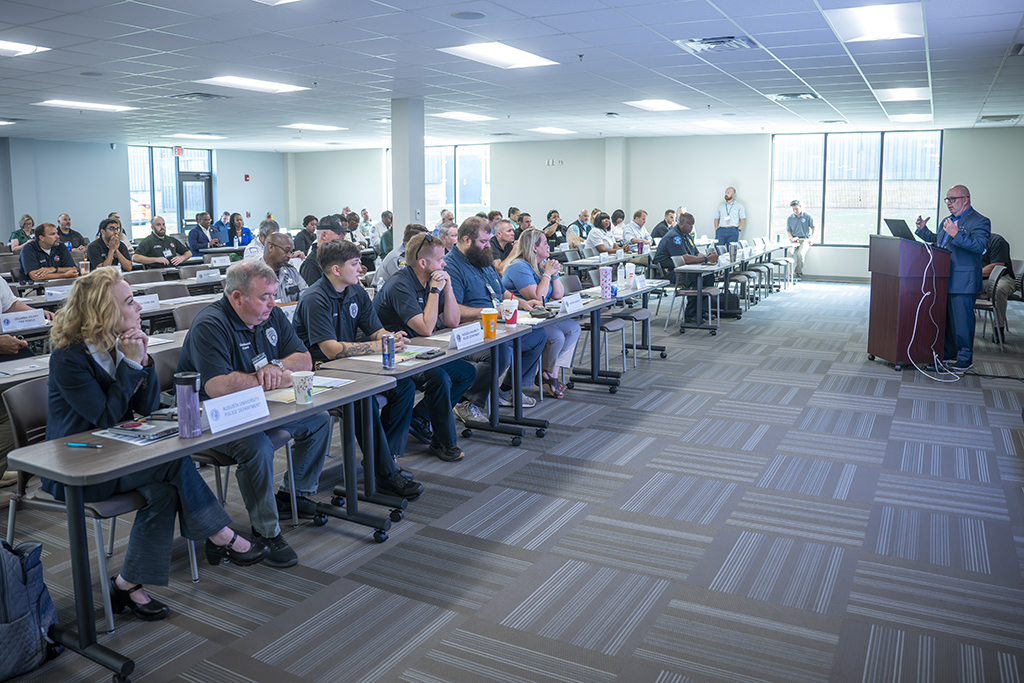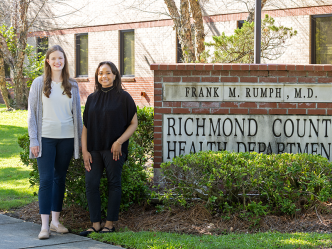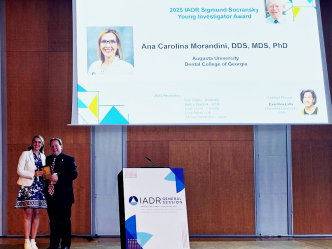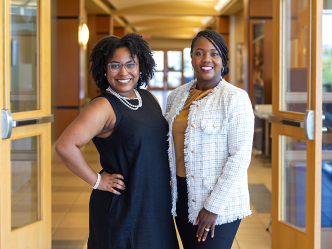Local, state, regional and federal agencies recently convened for a community-wide tabletop exercise that focused on enhancing multi-agency coordination and community resilience in the event of compound emergencies.
The exercise, hosted by #strongaugusta and facilitated by the U.S. Department of Homeland Security and the Exercise Branch of the Infrastructure Security Division within the Cybersecurity and Infrastructure Security Agency, took place at the Columbia County Board of Education facility on July 30.
“These discussions go to further identify any gaps in resources or planning, and then being able to identify that in a no-fault environment to where you can go back and make adjustments or test your policy and procedure as you’ve made adjustments to the scenario.”
Zach Williams, protective security adviser from the Atlanta office of CISA
More than 30 agencies attended the event, including Augusta University’s Office of Critical Event Preparedness and Response, which is part of ongoing efforts to strengthen regional preparedness through realistic, scenario-driven training. The tabletop exercises simulated incidents that questioned and tested existing response protocols while sharing intelligence and potential solutions.
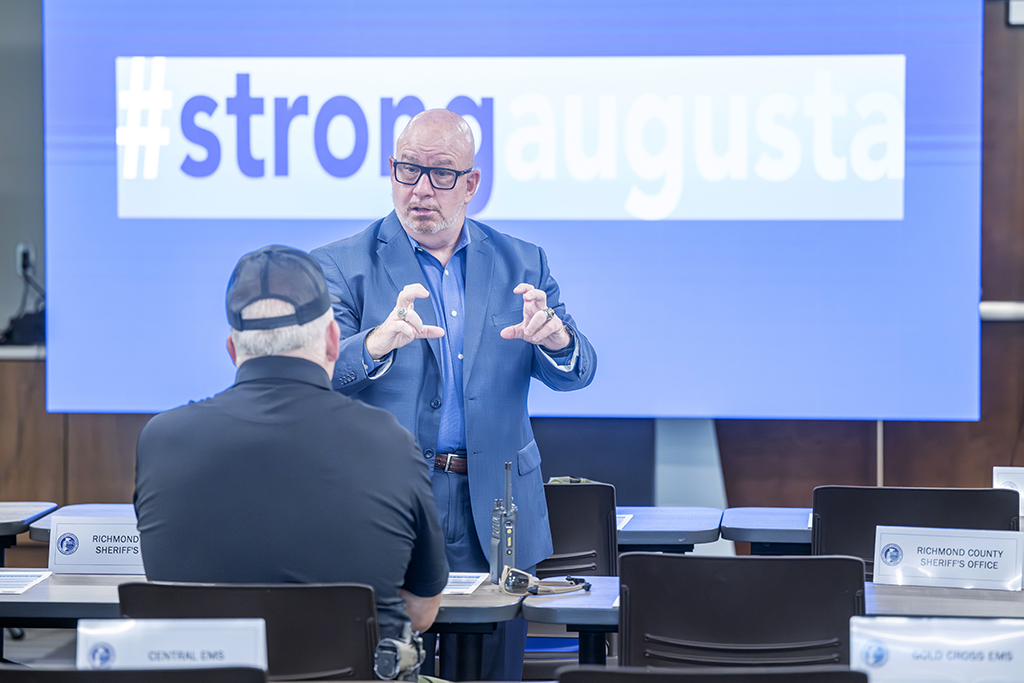
Augusta Mayor Garnett Johnson spoke before the event and thanked the participants for taking the time to prepare for an event and doing everything they could to “keep our community safe.”
“Being prepared is critically important, so this training is essential not only for keeping Augusta safe but keeping this region safe,” Johnson said. “I love to see this collaboration that extends far beyond the boundaries of Augusta and Richmond County because we are a community of one, and that extends far beyond Columbia County. On behalf of the City of Augusta, we thank you for this training, your commitment to this community and, most importantly, for your service.”
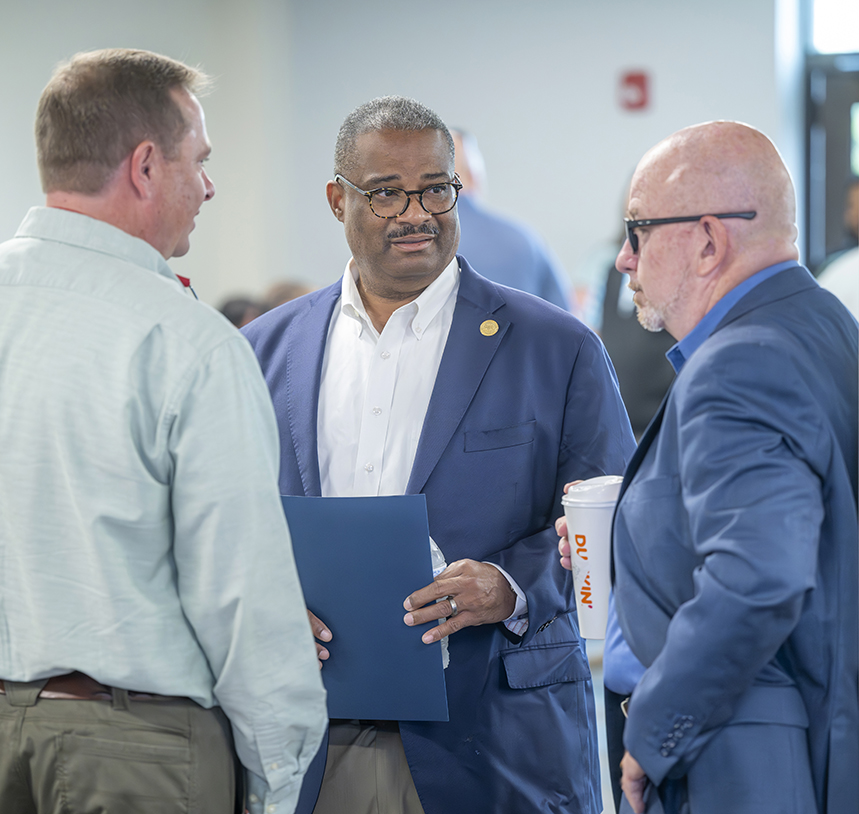
Zach Williams, the protective security adviser from the Atlanta office of CISA, said these types of exercises are important because of the number of people coming together to collaborate on what would happen in the event of an emergency or an incident.
“These discussions go to further identify any gaps in resources or planning, and then being able to identify that in a no-fault environment to where you can go back and make adjustments or test your policy and procedure as you’ve made adjustments to the scenario,” Williams said.
Williams mentioned that whenever agencies undergo these types of exercises, it is inevitable that something planned for “isn’t always how you would envision it during an incident,” and these discussions allow time to go back and make adjustments.
“Sometimes you identify different people who need additional training. For instance, we may sit in an exercise and know one person has all of the information, but if they are on vacation or something happens and they’re not present, who’s going to step in and fill that role?” Williams said. “This is a good opportunity to identify personnel and say, ‘We need to delegate or share some of this knowledge to other parts of the organization.”
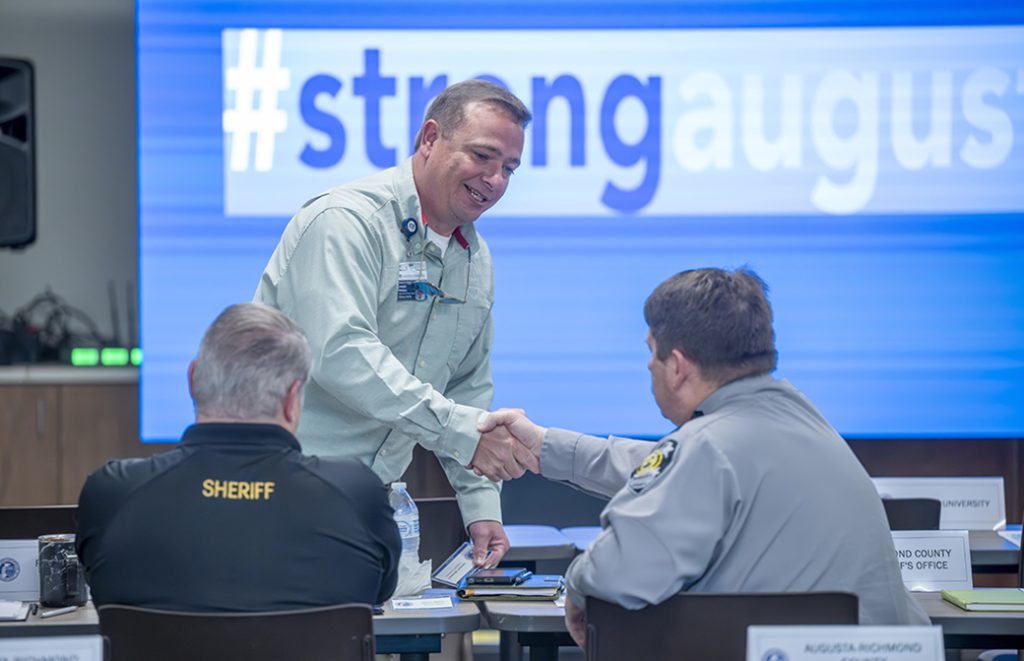
Williams also noted that, aside from the discussions the actual exercise brings, the agencies that are sitting next to one another get another opportunity to communicate before an incident, not just during a response.
“Being able to be in a planning environment fosters that collaboration and conversation, but it’s also just good for strengthening relationships for down the road,” Williams said.
John Ryan, coordinator for #strongaugusta and CEPaR, said he was “appreciative, excited and grateful” for the event and that people recognize the potential that something could happen within the community.
“I’m glad we don’t have a ‘It happened somewhere else’ mentality and that we have the tools and the relationships to put events like this on, and that people respond in kind,” Ryan said. “They are taking time from very busy schedules, understaffed offices and agencies to come to these training events so that we can work together and try to identify gaps ahead of time. Hopefully, we can fill those gaps before an eventual event shows up in our community, and we can be as best prepared as we can to give the stakeholders the most favorable outcome that we can possibly expect.”
 Augusta University
Augusta University
